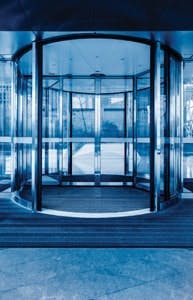Baby boomers (born 1946 to 1964) “will retire at a rate of 10,000 per day through at least 2030, when almost 73 million Americans, comprising more than 20% of the U.S. population, will be age 65 or older,” according to the Insured Retirement Institute. This turnover will impact the workforce for the next 14 years. This is not something that may or may not happen—it is happening right now.
Millennials (born 1982 to 2000) are staying at a job for an average of 4.4 years, according to the most recent data available from the U.S. Bureau of Labor Statistics. This means millennials will change jobs a minimum of three to four times in the next 14 years.
Have you evaluated your workforce and what issues you may face with turnover? If there is turnover, you need to address training. New hires require proper training to perform at the level and quality you demand for your business.
According to the 2014 Training Industry Report from Training magazine, the annual training budgets for U.S. small businesses totaled an average of $308,000 in 2014, with retail and wholesale spending more than $500,000. Approximately $1,200 was spent per employee. Those numbers are three years old, and we all know that in business, costs increase every year.
So what does this mean for small businesses? How can we make it through personnel transitions and trainings? One way is to provide a road map with processes and procedures.
Tribal Culture
Processes and procedures empower your employees and provide your business with training tools. They inform the decisions, structure, hierarchy and foundation of the business. Never underestimate how vital processes and procedures are to business growth.
Applied Management Group Inc. hears from clients that “our oldest techs train our new techs.” These businesses are relying on tribal knowledge to train new employees. This creates a tribal culture, or a system in which knowledge is handed down verbally from one worker to the next with little information formally set in written procedures. It puts a strain on a new employee in the event he or she does not adhere to those standards or understand what is expected of him or her.
Indicators of tribal culture are phrases like, “I taught them everything they know,” or, “I know more about this company than the owner—he can’t fire me.”
Is it the best thing for your business and your employees to have your oldest employees train your newest ones? We have personally worked with a business that did this and announced it proudly to us before and after our service calls—they wanted everyone to know! But from a customer’s point of view, this was not a bragging right. That company had to visit a customer’s home multiple times to fix a problem. The oldest technician, who said he trains all of the other technicians, visited first, but on the next visit, the newest one came. The new technician broke from his training and tried something he thought might work. He figured it out and the problem was fixed within minutes.
Take a step back from time to time and look at things from your customers’ point of view. Your perception as a business owner of the value and quality your customers are receiving may not be in alignment with your customers’ perceptions and expectations.
Performance Culture
Many businesses run on the trust that their tribal knowledge employees will stay with them. But many of those employees are reaching retirement age. Employment is a revolving door. If there was ever a time for business owners to take control, it is now. Move your business from a tribal culture to a performance culture, which determines how things are done and how people behave.
A performance culture is based on processes and procedures that empower employees. Those processes and procedures have to be created by the individuals who currently are performing the duties. This harnesses the tribal knowledge, but also gives employees direction and validation. The processes and procedures must be approved and enforced by all levels of management to instill a positive culture.
A performance culture is the hardest for your competitors to copy. It is what makes your business desirable to your customers. It makes your company more desirable to the quality employees you are constantly seeking. A performance culture creates an environment that cannot be duplicated by your competitors, while encouraging quality employees to work for you.
Create a culture that differentiates your businesses from the others while empowering your employees, securing your customers, and ensuring your knowledge is documented and ready to be passed on. Insulate your business, take control and be prepared for that revolving door.



